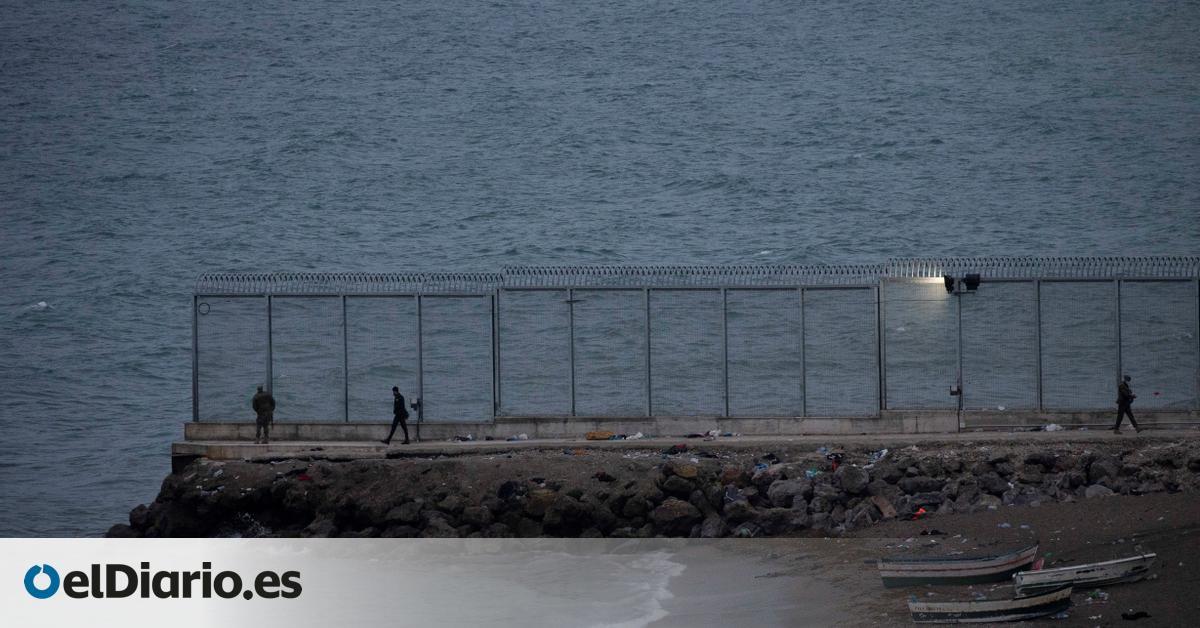
The fourth section of the Constitutional Court has admitted for processing the amparo appeal filed by three NGOs against the archive of the Tarajal case, which investigated the death of 14 people in their attempt to reach Ceuta by swimming, responded with rubber balls and boats of smoke by the Civil Guard.
“My son died in the Tarajal between rubber balls: he was an immigrant but he was also my son”
Further
After the final closure of the case by the Supreme Court in June 2022, the NGO Coordinadora de Barrios Asociación Pro Derechos Humanos de España and the Spanish Commission for Refugee Assistance appealed to the High Court through an amparo claim for an alleged violation of the right to life and the right to effective judicial protection in the shelving of the investigation.
The lawsuit registered by the NGOs raises an issue before the Constitutional Court “on which there is still no doctrine of the Constitutional Court: the general obligation of the State to protect the right to life by law,” the organizations said in a statement.
“It is an opportunity to establish constitutional doctrine that protects the right to life of migrants at the borders,” they have stated from the NGO. “We trust that, almost ten years later, justice will be done and events as serious as those that happened on February 6, 2014 will not be repeated again,” adds Elena Muñoz, coordinator of CEAR’s Legal Area.
In June of last year, the Supreme Court considered that there was no cassation appeal against the order of free dismissal of the Provincial Court of Cádiz -based in Ceuta- because it was a procedure initiated by a Criminal Court before the reform of the Criminal Procedure Law of October 5, 2015.
The sentence ratified the closure of a long procedure, characterized by a succession of files from the Ceuta courts and reopenings ordered by the Provincial Court until in 2020 the magistrates of this court concluded that the Civil Guard operation, which fired rubber bullets and smoke canisters near where the immigrants swam, was carried out “with the use of means of mass control in an adequate and proportional manner to the circumstances of the case.”
The Court ruled out accusing all the agents charged with reckless homicide for a possible misconduct by one of the members of the Armed Institute. “It would be unreasonable to attribute to each and every one” of the accused civil guards, “criminal responsibility for some hypothetical deviation of a member of the most careless or even malicious group.”
The order stressed that the action was carried out “by a militarized force under a command” (the captain responsible for the operation) “who, although he did not give an express order for the use of riot control material, carried out some launches and shots to that his subordinates emulate him, so that in the absence of such a concert of wills, it would have had to be determined what specific acts carried out by each of those investigated caused” the death of 14 people.
Regarding the denial of assistance to the migrants who tried to swim around the jetty, the Provincial Court ruled out that the accused agents had the duty to help them. “The civil guards who were on the jetty or the beach had no obligation to help the swimmers,” the three magistrates of the Chamber ruled. The Court justified that “it has not been proven that they made any request in this regard” nor “is there any evidence that in their presence, on the Spanish side, no one was drowning or in danger.”
The judges of the ratified resolution mentioned a series of recordings that, as they concluded, “corroborated” that the civil guards on land, like those of the maritime service, “showed at all times an attitude of help to the immigrants who were in the Spanish zone , rescuing from the patrol boat all those who did not go to the shore”. The popular accusation maintains that these images date from after the deaths occurred, when they consider that they should have been assisted, while the group was accumulated in the water while the shooting of rubber bullets and smoke canisters continued.
Source: www.eldiario.es

